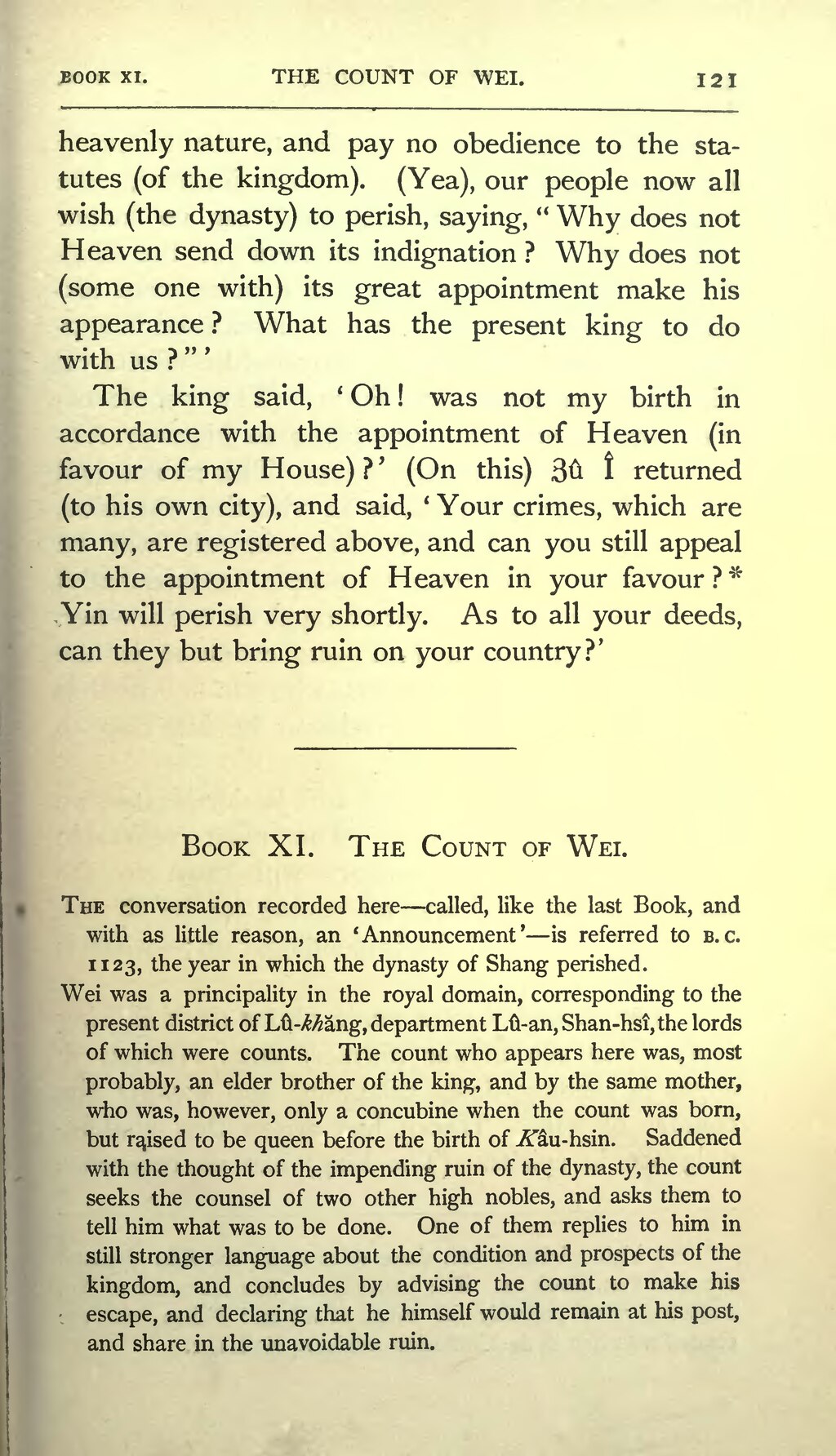heavenly nature, and pay no obedience to the statutes (of the kingdom). (Yea), our people now all wish (the dynasty) to perish, saying, "Why does not Heaven send down its indignation? Why does not (some one with) its great appointment make his appearance? What has the present king to do with us?"'
The king said, 'Oh! was not my birth in accordance with the appointment of Heaven (in favour of my House)?' (On this) Zû Î returned (to his own city), and said, 'Your crimes, which are many, are registered above, and can you still appeal to the appointment of Heaven in your favour?* Yin will perish very shortly. As to all your deeds, can they but bring ruin on your country?'
Book XI. The Count of Wei.
The conversation recorded here—called, like the last Book, and with as little reason, an 'Announcement'—is referred to B.C. 1123, the year in which the dynasty of Shang perished.
Wei was a principality in the royal domain, corresponding to the present district of Lû-khăng, department Lû-an, Shan-hsî, the lords of which were counts. The count who appears here was, most probably, an elder brother of the king, and by the same mother, who was, however, only a concubine when the count was born, but raised to be queen before the birth of Kâu-hsin. Saddened with the thought of the impending ruin of the dynasty, the count seeks the counsel of two other high nobles, and asks them to tell him what was to be done. One of them replies to him in still stronger language about the condition and prospects of the kingdom, and concludes by advising the count to make his escape, and declaring that he himself would remain at his post, and share in the unavoidable ruin.
